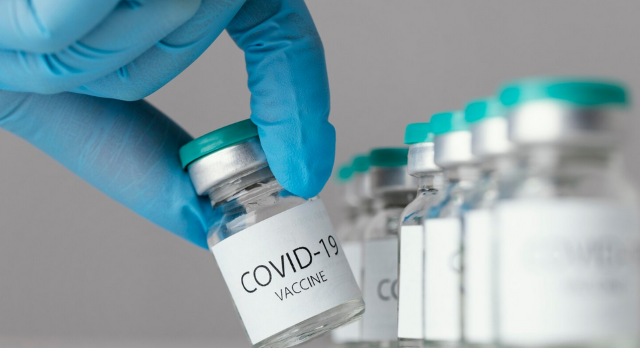As the fall season is kicking into gear, so are respiratory illnesses that come with the colder weather. This year, access to the COVID-19 shot just got more complicated for kids and here is what parents need to know.
Five years after the pandemic first changed daily life, the guidance on COVID-19 vaccines is still evolving and now, it’s more complicated for parents of young children. The Food and Drug Administration (FDA) recently approved updated vaccine formulas aimed at tackling newer strains of the virus, but access has been narrowed, sparking concern among pediatric experts.
On August 27, 2025, the FDA signed off on updated vaccines from Pfizer, Moderna, and Novavax. Here is what the updates entail:
- Seniors 65 and older get automatic access.
- Adults and children under 65 now need to have at least one high-risk health condition, such as asthma or obesity, to qualify.
- For children under 5, Pfizer’s emergency authorization has expired, meaning its version is no longer available for this age group. Moderna’s shot remains authorized for infants as young as 6 months.
That leaves many families uncertain about whether their children can get vaccinated at all, and what costs or barriers might stand in the way.

The American Academy of Pediatrics (AAP) has openly criticized the move, calling the new limits “deeply troubling.” AAP president Dr. Susan J. Kressly emphasized that blocking access could put children in greater danger as respiratory virus season begins.
“As we enter respiratory virus season, any barrier to COVID-19 vaccination creates a dangerous vulnerability for children and their families,” said Kressly in a recent interview with Parents.
The AAP continues to recommend the vaccine for all children ages 6–23 months, along with annual shots for older kids who have underlying conditions that put them at higher risk.
Doctors say there are still many unanswered questions about these new FDA updates. Some of the questions include:
- Will pharmacies be allowed to give shots “off-label” to kids who no longer qualify under the FDA’s label?
- Will pediatricians be able to purchase and stock enough vaccine doses?
- How much will insurance cover or will parents have to pay out of pocket?

“It may limit access to the vaccines,” explained Dr. Ari Brown, a Texas-based pediatrician and author of Baby 411. She added that the answers should become clearer as new shipments arrive and insurance companies finalize their policies.
Pharmacist Cherokee Layson-Wolf agrees the issue isn’t just about supply, but about state regulations and insurance coverage. She warns that if fewer kids get vaccinated, case numbers could rise again, putting families at greater risk.
Great Job Tiffany Silva & the Team @ BCK Online Source link for sharing this story.




